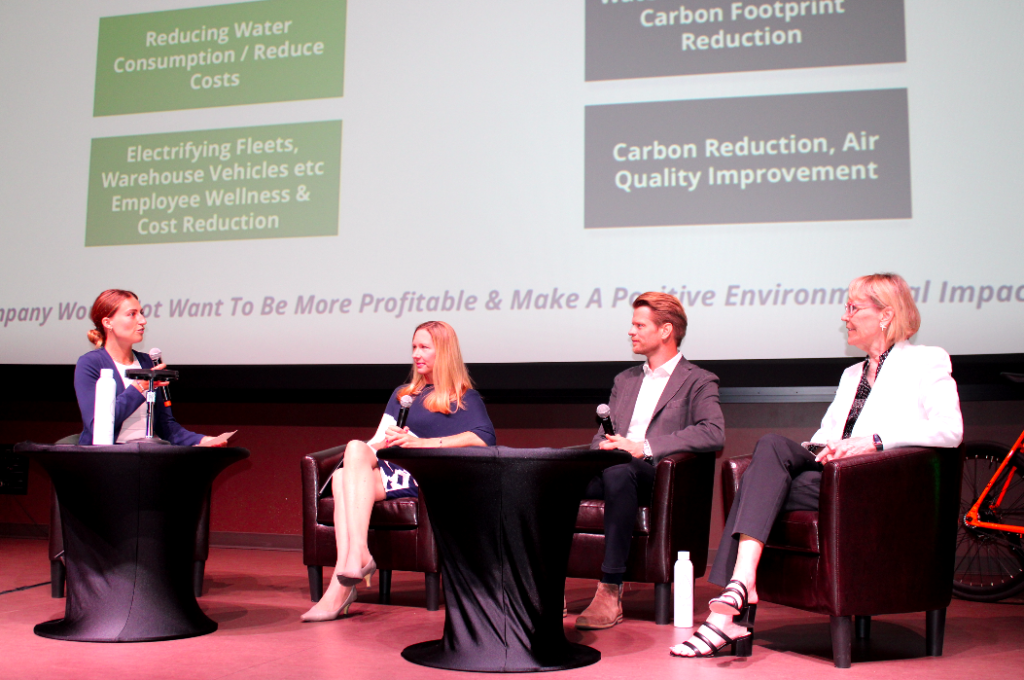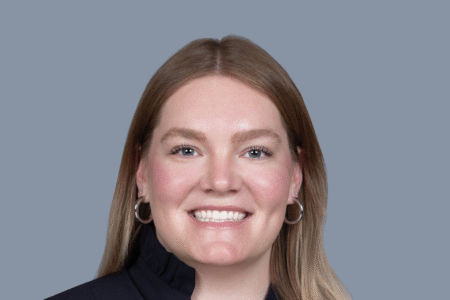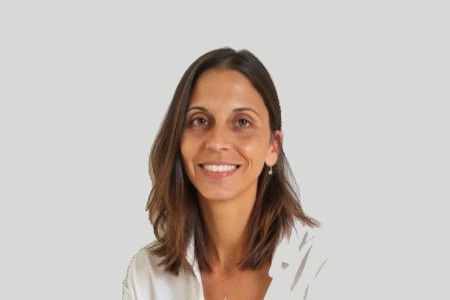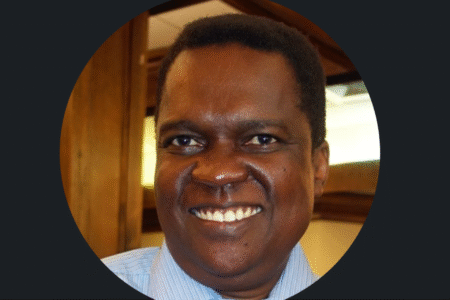
Green Success Stories sat down with Karin L. Burns, CEO of San Diego Community Power, to learn about her journey from a global finance to a renewable energy executive. San Diego Community Power is a local electricity provider delivering affordable clean energy and investing in the community to create an equitable and sustainable future for the San Diego region, serving nearly a million customers as the second largest community choice aggregator in California. With Karin at the helm, SDCP is catalyzing the clean energy transition and ensuring the future of energy is inclusive and accessible to everyone.
Tell us about your background
I’m passionate about catalyzing real solutions to address climate change, creating organizational cultures focused on inclusion and equity, and building growth-focused, exceptional teams driven to succeed by a strong belief in the mission of the organization. As San Diego Community Power’s Chief Executive Officer, I am responsible for leading a team who ensures we can provide reliable, clean, competitively-priced power to our nearly one million customers and execute the organization’s strategic plan.
I’ve been at the helm of sustainability-centered organizations in California for almost a decade, leading through periods of rapid growth, uncertainty, and evolving market dynamics. I joined San Diego Community Power from Franklin Energy where I was the vice president of corporate strategy. Prior to that, I was the Chief Executive Officer of Build it Green (BIG). Both organizations focused on energy and energy efficiency. Previously I was at the helm of Code REDD and its Stand for Trees campaign, which focused on harnessing the power of global carbon markets to preserve forests, empower people and protect wildlife.
My earlier career was spent mostly overseas in the world of international finance and banking, where I worked in the areas of mergers and acquisitions, capital raising, and private equity from London to Hong Kong to Dubai. I had an insatiable curiosity to learn about other countries and cultures, and lived or worked in India, Brazil, Indonesia and China when I first graduated from college.
I’m fortunate to have had such diverse career experiences that created the opportunity for me to join San Diego Community Power and help ensure that our 3-year-old public agency startup is able to serve our customers for generations to come.

Why do you think sustainability is an important topic today?
Climate change is the most pressing challenge that humanity is facing, and we are running out of time to avoid the worst consequences of our reliance on fossil fuels. We are already experiencing the devastation that it has been causing around the world – and most climate scientists believe things will get worse before they get better. Sustainability isn’t just a topic – it is a better, dare I say necessary, way of interacting with our world that each and every one of us must embrace – from global leaders to individual consumers – without further delay.
What would you do with $1 billion dollars?
If you’re asking about what I would do with $1 billion personally, I would invest in the development of as many medium to large-scale battery energy storage facilities as possible throughout California.
At San Diego Community Power, we just hit $1 billion in receivables, recently. As a not-for-profit public agency, it’s our duty to spend that money responsibly on behalf of our ratepayers. That means leveraging those dollars to purchase clean power at the lowest cost possible and passing those savings on to our customers.
Any dollar collected beyond what we need to purchase power or support our staff is reinvested into the communities we serve.
It’s important to remember that the median income for an individual in San Diego County is $39,000 a year while we have the highest housing and energy costs in America. For a lot of those folks, electrification seems completely out of reach because of how expensive it can be.
San Diego Community Power wants to give folks a hand up with any excess revenues we have. It’s our mission to create an equitable and sustainable future for the people we serve. The programs we’re developing now will play an important role in that.
What do you envision your industry looking like in ten years?
In ten years, Community Choice Aggregation programs like ours will be on the verge of reaching our goal to provide 100 percent clean and renewable energy for millions of Californians. We will have developed and deployed new technologies that will improve energy development, reliability, dispatch, and demand. We will have seen the proliferation of distributed energy resources across the zstate, especially rooftop and infill solar combined with battery energy storage. And we will have made significant investments in programs and incentives that encourage the adoption of electrification and energy efficiency technologies across all industries and communities, including those most vulnerable to climate change.
What can the average person do to make a difference?
Every one of us can make choices to protect nature, tackle climate change, and take care of our planet, particularly in the energy space. Choosing cleaner energy is one of the key initiatives to protecting our environment and slowing climate change, as outlined in the UN’s Sustainable Development Goals.
The average person can conserve their energy usage during critical ‘peak’ hours to put less pressure on the grid, usually saving money at the same time. While we’re making massive strides to produce more renewable power, a lot of electricity across the country still comes from fossil fuels. The less power you use, the less gas and oil is needed to supplement electricity coming from clean sources like solar and wind. And if you are in a state or location with a high percentage of renewables feeding into the grid, reducing energy usage during evening hours (typically 4-9 pm) when solar drops off and before wind comes on can definitely help out.
Simple ways to use less power can be as easy as limiting major appliance use during peak evening hours, turning off all but essential lighting, setting your thermostat at somewhat higher (in summer) or lower (in winter) temperatures, attaching and programming smart plugs on frequently run electronics, and pre-cooling your home during solar-abundant hours of the day.
Any final thoughts you’d like to share?
Because I have had the honor to work with so many brilliant and talented people from around the globe throughout my career, I am convinced that solving the global climate crisis cannot be something that one country, one demographic, nor one socio-economic group delivers to everyone else. This was the energy industry of the past, but if we want to truly affect the changes that are required, we must go forward in a way that is inclusive, representative, and equitable in our approach – both locally and on the global stage.
There is a simple yet profound African proverb which (so I hear) originated in Burkina Faso –“ If you want to go fast – go alone. If you want to go far – go together.” To solve this climate crisis we must all go together.
If you have a passion for sustainability, inclusion and climate equity, there is no better time than now to get involved and make a real impact. The future of energy is here, and it is for everyone.
Green Success Stories is excited to announce Karin Burns will be one of our featured presenters at the 2023 San Diego Green Summit, as well as a panelist on the San Diego Community Leaders panel at the event.
If you are interested in joining the 2023 San Diego Green Summit, reserve your spot here.




